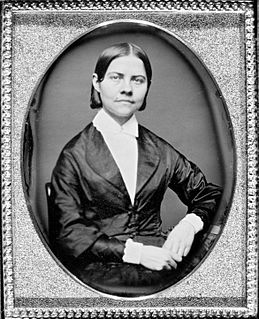A Quote by Samuel Johnson
He who expects much will be often disappointed; yet disappointment seldom cures us of expectation, or has any other effect than that of producing a moral sentence or peevish exclamation.
Related Quotes
If parents are aiming at choosing children who will be good athletes, or great musicians, or who will get into Ivy League schools, or who will be tall enough to make the basketball team, then there is a danger that the life of the child will bear the burden of that expectation; and the risk of disappointment and the cost of disappointment will be even higher than they are now, and even now they can be considerable.
The other effect that I worry about is the effect on the parent, that the moral teaching of humility and of the limits to our control that parenthood teaches- - that that will be lost and that we will begin to think of children more as consumer goods than as gifts that we can't fully control and for which we aren't fully responsible.
If the brain expects that a treatment will work, it sends healing chemicals into the bloodstream, which facilitates that. That's why the placebo effect is so powerful for every type of healing. And the opposite is equally true and equally powerful: When the brain expects that a therapy will not work, it doesn't. It's called the "nocebo" effect.
Exclamation points are the most irritating of all. Look! they say, look at what I just said! How amazing is my thought! It is like being forced to watch someone else's small child jumping up and down crazily in the center of the living room shouting to attract attention. If a sentence really has something of importance to say, something quite remarkable, it doesn't need a mark to point it out. And if it is really, after all, a banal sentence needing more zing, the exclamation point simply emphasizes its banality!
The last speaker alluded to this movement as being that of a few disappointed women. From the first years to which my memory stretches, I have been a disappointed woman. I was disappointed when I came to seek a profession worthy an immortal being - every employment was closed to me, except those of the teacher, the seamstress, and the housekeeper. In education, in marriage, in religion, in everything, disappointment is the lot of woman. It shall be the business of my life to deepen this disappointment in every woman's heart until she bows down to it no longer.





































